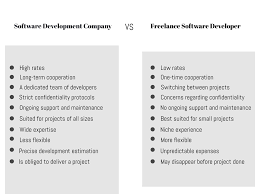Empowering Organizations Through Strategic Cyber Consulting Services
The Importance of Cyber Consulting in Today’s Digital World
In an era where digital threats are becoming increasingly sophisticated and prevalent, the need for cyber consulting services has never been more critical. Cyber consulting involves the assessment, planning, and implementation of strategies to protect organizations from cyber threats.
With the rise of remote work, cloud computing, and interconnected devices, businesses are more vulnerable than ever to cyber attacks. A cyber consulting firm plays a crucial role in helping organizations identify potential vulnerabilities, develop robust security measures, and respond effectively to security incidents.
Benefits of Cyber Consulting Services
- Risk Assessment: Cyber consultants conduct thorough assessments to identify potential risks and vulnerabilities within an organization’s IT infrastructure.
- Security Planning: They develop comprehensive security plans tailored to the specific needs and challenges of each client.
- Incident Response: In the event of a security breach, cyber consultants provide rapid response and mitigation strategies to minimize damage.
- Compliance Assistance: They help organizations navigate complex regulatory requirements and ensure compliance with data protection laws.
- Training and Education: Cyber consultants offer training programs to educate employees on best practices for cybersecurity awareness.
The Role of Cyber Consultants
Cyber consultants act as trusted advisors to organizations, guiding them through the ever-evolving landscape of cybersecurity threats. By staying abreast of emerging trends and technologies, they help clients stay one step ahead of potential threats.
Whether it’s implementing multi-factor authentication protocols, conducting penetration testing, or enhancing network security measures, cyber consultants play a vital role in safeguarding sensitive data and maintaining business continuity.
Conclusion
In conclusion, cyber consulting services are essential for organizations looking to protect themselves from the growing number of cyber threats in today’s digital world. By partnering with a reputable cyber consulting firm, businesses can enhance their security posture, mitigate risks, and ensure a resilient defense against malicious actors.
6 Essential Tips for Excelling in Cybersecurity Consulting
- Stay updated with the latest trends and technologies in cybersecurity.
- Develop strong communication skills to effectively convey complex technical information to clients.
- Build a network of professionals in the cybersecurity industry for collaboration and support.
- Prioritize continuous learning and certifications to enhance your expertise.
- Understand the specific needs and challenges of each client to provide tailored solutions.
- Maintain a high level of professionalism and integrity in all client interactions.
Stay updated with the latest trends and technologies in cybersecurity.
Staying updated with the latest trends and technologies in cybersecurity is a crucial tip for effective cyber consulting. The field of cybersecurity is constantly evolving, with new threats emerging and innovative solutions being developed to combat them. By staying informed about the latest developments, cyber consultants can better understand potential risks, anticipate future challenges, and recommend cutting-edge security measures to protect their clients’ digital assets. Continuous learning and adaptation to the dynamic landscape of cybersecurity are key to providing top-notch consulting services that address the ever-changing needs of organizations in today’s digital age.
Develop strong communication skills to effectively convey complex technical information to clients.
Developing strong communication skills is crucial in the field of cyber consulting, especially when it comes to conveying complex technical information to clients. As cyber consultants, being able to explain intricate cybersecurity concepts in a clear and understandable manner is essential for building trust and fostering effective collaboration with clients. By honing communication skills, consultants can bridge the gap between technical jargon and layman’s terms, ensuring that clients grasp the importance of cybersecurity measures and feel confident in the solutions proposed to protect their digital assets.
Build a network of professionals in the cybersecurity industry for collaboration and support.
Building a network of professionals in the cybersecurity industry is a valuable tip for effective cyber consulting. By establishing connections with experts in the field, consultants can leverage their collective knowledge and experience for collaboration and support. This network provides a platform for sharing insights, best practices, and emerging trends in cybersecurity, enabling consultants to stay informed and enhance their expertise. Collaboration within this network not only fosters professional growth but also strengthens the overall cybersecurity community, ultimately benefiting clients through more robust and innovative solutions.
Prioritize continuous learning and certifications to enhance your expertise.
To excel in the field of cyber consulting, it is crucial to prioritize continuous learning and certifications to enhance your expertise. The rapidly evolving landscape of cybersecurity demands that professionals stay updated with the latest trends, threats, and technologies. By pursuing ongoing education and obtaining relevant certifications, cyber consultants can deepen their knowledge, sharpen their skills, and demonstrate their commitment to maintaining a high standard of expertise in safeguarding organizations against cyber threats.
Understand the specific needs and challenges of each client to provide tailored solutions.
Understanding the specific needs and challenges of each client is a fundamental aspect of effective cyber consulting. By taking the time to assess and analyze the unique circumstances of a client, cyber consultants can develop tailored solutions that address their specific security concerns. This personalized approach not only enhances the effectiveness of the cybersecurity measures implemented but also fosters a stronger partnership between the consultant and the client, leading to more successful outcomes in safeguarding against cyber threats.
Maintain a high level of professionalism and integrity in all client interactions.
It is crucial for cyber consulting professionals to maintain a high level of professionalism and integrity in all client interactions. By upholding ethical standards and demonstrating trustworthiness, consultants build credibility and foster strong relationships with their clients. This approach not only enhances the consultant’s reputation but also instills confidence in the client, ensuring transparency and effective communication throughout the consulting process. Professionalism and integrity are key pillars in establishing a solid foundation for successful cyber consulting engagements.





